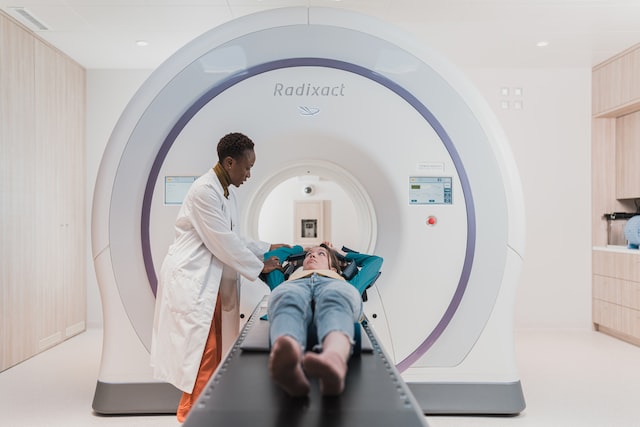The public healthcare crisis, an aging population, and increasing workloads have caused the industry to turn to artificial intelligence (AI) for help. The wide adoption of the healthcare middleware market is so popular that it’s expected to reach 5.65 billion USD by the end of 2029.
But is AI actually capable of improving patient management in hospitals? Yes! Let’s take a look at the multiple AI in healthcare examples that currently help staff increase patient satisfaction.
How AI Improves Patient Management in Hospitals
When used correctly, AI can greatly improve patient management in hospitals, thus increasing overall satisfaction rates. Here are 5 big ways artificial intelligence is shaking up healthcare.
1. AI Streamlines Administrative Tasks
AI can be used to automate many of the tedious administrative tasks associated with patient management. This can include everything from scheduling appointments and managing patient records to tracking payment histories. Automation can also reduce errors and improve accuracy.
With that said, healthcare providers need to use the right software to maximize performance and/or give them enough time to perform more essential tasks manually. Selecting the right EHR (electronic health record system) will require a lot of research, but it’s worth it in the end.
2. AI Allows for Predictive Analysis
The healthcare industry is sitting on piles of valuable data they can use to help patients. AI can analyze large amounts of patient data to predict patient outcomes and identify potential risks. This can help hospitals proactively manage patient care and reduce the risk of complications.
By using AI in predictive analytics, hospitals can also make more informed decisions about patient treatment and resource allocation. Most AI in healthcare examples you’ll find have a dashboard that brings this data together, making it easy for workers to assess it quickly.
3. AI Provides Clinical Decision Support
While predictive analysis is important for hospitals and patients, AI can be used to analyze patient data and provide real-time recommendations for patient care. This is especially helpful for patients that don’t have previous health records on file or are recent US immigrants.
Real-time monitoring can also help hospitals identify potential health problems early on, which can prevent complications and reduce the need for hospital admissions. By using AI in clinical decision support, hospitals can also improve the efficiency of care delivery and reduce costs.
4. AI is Perfect for Home Monitoring
Frequent checkups are essential for patients who have chronic health conditions or need to be consistently monitored. AI-powered remote patient monitoring (RPM) devices can allow patients and providers to monitor, report, and analyze conditions outside the clinic or hospital setting.
Technology like this is optimal for giving patients peace of mind and preventing overcrowding. Instead of looking up info online, patients can talk to a doctor directly or discuss symptoms on an app. This can prevent patients from thinking their symptoms are worse than they are.
5. AI Improves Overall Patient Satisfaction
When the healthcare industry uses AI with the intent to improve patient care, it typically leads to improved patient satisfaction along with better health outcomes. This is done by decreasing the overall workload and organizing patient records, so they’re available precisely when needed.
AI has the potential to improve patient management in hospitals in many ways. However, AI should be used in conjunction with human expertise and judgment, and it should not completely replace human staff. Be sure that all software is compatible with HIPAA security standards.
In Conclusion…
Overall, AI has the potential to greatly improve patient management in hospitals. By taking over tedious administrative tasks and helping healthcare professionals make more accurate diagnoses and treatment decisions, AI can help ensure that patients receive the best care.




